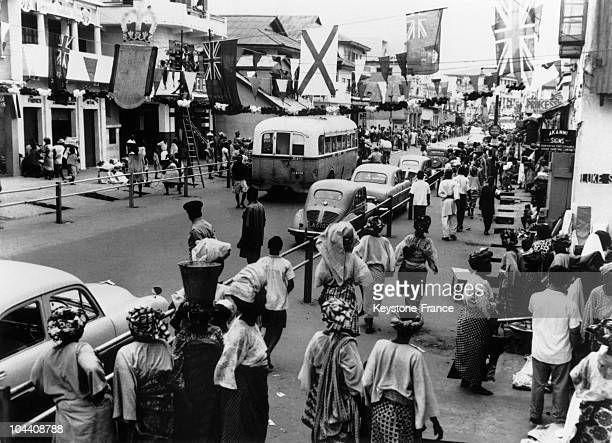Walk into any traditional Igbo market and you’ll feel it before you see it; the pulse. The air is alive with calls of “bia zụta!” (come and buy), the rhythmic clink of coins, the rustle of wrappers brushing against each other, and the sweet-salty smell of roasted groundnuts mixing with palm oil and fresh vegetables. This is not just a place of trade, it is life unfolding in its most communal form.
For centuries, markets have been the heartbeat of Igbo society. They were never just about buying and selling; they were about gathering, storytelling, and surviving together. And even though the landscape of commerce has changed, from clay pots to smartphones, the ahia spirit endures.
The Old Ahia – Our First Market Squares
Long before shopping malls and online stores, the Igbo market was the ultimate meeting point. Every village had its cycle—Eke, Orie, Afo, Nkwo—four sacred market days that ordered people’s lives. These were more than days of trade; they were cultural anchors.
In ahia, neighbors met, news spread, matches were made, disputes settled, and friendships renewed. It was the school of commerce where a child learned patience from watching a mother bargain, and trust from seeing fathers extend goods on credit, knowing the debtor’s word was as binding as cash.
The market was not just an economic space but a social glue.
The Transformation of Ahia
With colonial intrusion came coins, cash economy, and eventually modern trade systems. Open-air markets grew into motor parks, plazas, and global export hubs. Today, Onitsha Main Market is not just Nigeria’s biggest, it is also the largest in Africa, buzzing with goods that travel across borders.
Yet the essence has not shifted. Where once a woman spread her akwụkwọ nri (vegetables) on raffia mats, today her granddaughter runs an Instagram store, uploading pictures of thrift clothing. Where once men carried their goods to the roadside, today young Igbo traders run logistics companies, shipping goods nationwide.
The scene evolves, but the spirit is unchanged: connection, exchange, survival.
Youth and the New Ahia

If yesterday’s ahia was a dusty square, today’s is a glowing screen. Young entrepreneurs run their businesses on WhatsApp groups, Facebook marketplaces, and TikTok reels. Instead of shouting “bia zụta!” across a market stall, they now run sponsored ads, influencer campaigns and offer deliveries.
But the essence is the same: the Igbo entrepreneurial drive remains fierce. The same spirit that once carried kola nuts across towns now fuels e-commerce and fintech startups. The same communal trust that allowed credit lines in the market has now birthed online communities where buyers rely on reviews and reputation.
For today’s youth, the digital world is simply another ahia.
Why the Market Spirit Will Never Die
At its core, trade is life. We buy to survive, we sell to sustain, and we gather to connect. The Igbo say, “Ahia na-ere mmadụ bụ ndụ mmadụ”—the market a person attends is their life.
As long as humans crave community, ahia will endure. It will take new forms, new names, and new tools, but its essence remains: a shared space of exchange.
Through the Igba Boi practice, the legacy of the Igbo market system lives on, passing down the values that keep the market spirit alive.
This is why the spirit of the market cannot die. It adapts. It survives. It lives on in every corner shop, every online store, every bustling plaza, and every digital cart.
Conclusion
The market is not just where we trade, it is where we live. From the open squares of old Igbo towns to the glowing apps on modern smartphones, ahia continues to beat with the same pulse.
And so, no matter how the world changes, one truth stands: Ahia endures.
